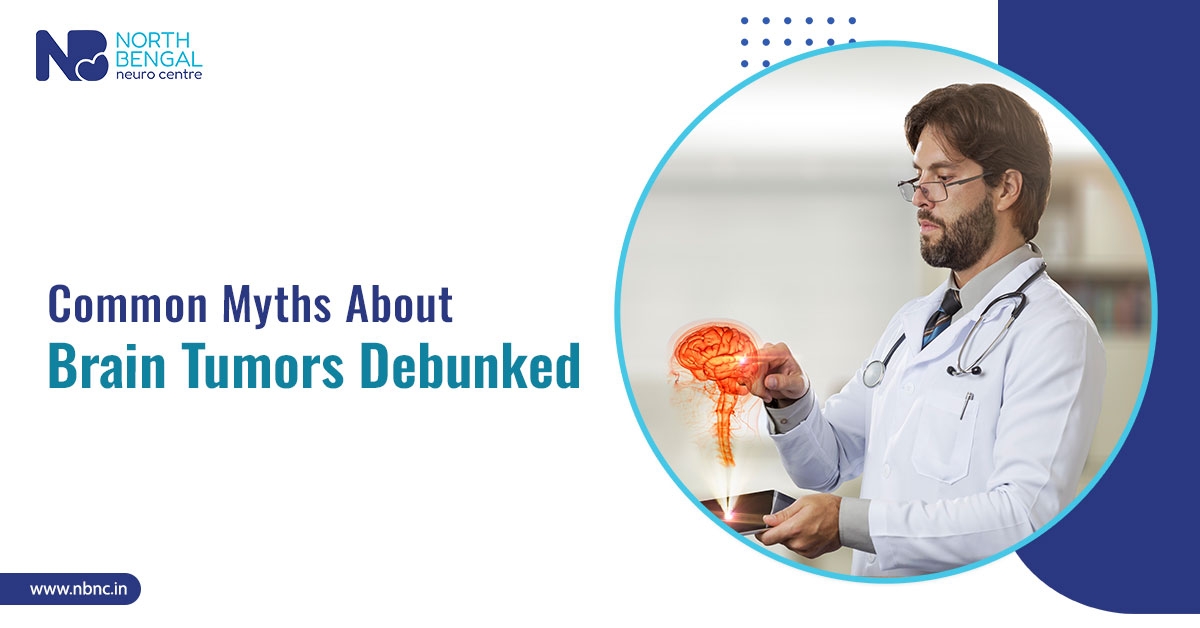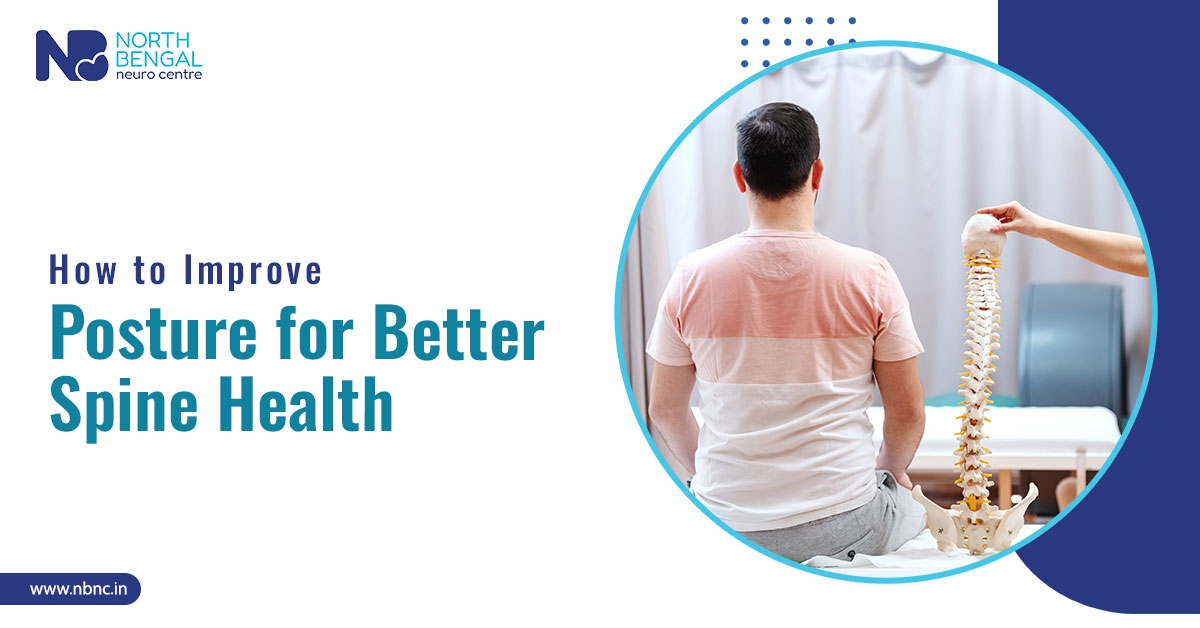The human brain is one of the most complex organs that controls our emotions, thoughts, movements and other essential functions of our body. There are various neurological disorders that can affect the functioning of your brain while reducing your life quality. If you suffer from any neuro issues then you must book an appointment with the best neurologist in Siliguri immediately at North Bengal Neuro Center to get the best diagnosis and treatment.
The first step that the doctor will follow while treating the neurological disorders is to perform certain diagnostic tests. Neurological tests not only help in detecting the underlying disorders but can also evaluate the brain functioning to curate an accurate treatment plan. You must know that the significance and type of neurological tests conducted by the doctor will depend upon your specific health needs and experienced symptoms.
When Do You Undergo Neurological Tests?
Nerve tests are often recommended by the neurologist to detect any underlying disorders affecting your peripheral nerves, brain, and spinal cord. In some cases, it can also be advised if any improper functioning in the sensory, motor, or autonomic nerves is noticed. Any issues with these nerves will cause problems with thinking, muscle movement, sense of touch, breathing, and memory.
In most cases, patients with noticeable symptoms of neurological disorders are often advised to undergo certain neurological tests. Some such symptoms include numbness, pain in your head or back, muscle weakness, and slurred speech. Some patients may also experience recurrent seizures due to neuro issues. If one or more of these symptoms persist then neurological tests are an ideal option based on which the entire treatment plan will be developed.
Below Are The Important Diagnostics And Tests Performed By Neurologists
1. Electroencephalogram (EEG)
An EEG is an effective test that helps in measuring the electrical activity in the brain. Any changes or abnormalities in the brain activity can be detected by this test which helps in diagnosing various brain disorders. Some of the neurological disorders that can be detected through this test are sleep disorders, seizures, epilepsy, and stroke. If a person is experiencing persistent coma then the doctor can also use this effective test to confirm brain death.
Procedure: During this test, the doctor will measure and mark your head to attach the electrodes. The technician will then attach the electrodes by using an adhesive or electric cap with the electrodes. After electrode attachment, the entire procedure may take around 20-40 minutes. Herein, you will also be directed to open and close your eyes multiple times, breathe, or read something. Your body motions along with brain waves are recorded throughout the procedure.
2. Diabetes Test
While visiting a neurology hospital in Siliguri for diagnosis, the doctor may also recommend you undergo a diabetes test. This is because diabetes is a major disorder that can cause significant damage to your peripheral nerves. You must know that diabetes has been found as the main cause of neuropathy. If you suffer from diabetic neuropathy then you may gradually lose sensation in your fingers and toes. This is why it is essential to check your blood sugar levels while diagnosing neuro issues.
Procedure: Blood tests are the best mode to check any fluctuations in blood sugar levels. During this test, the technician will collect blood samples twice a day, once on fasting and another one after two hours of eating your breakfast. Any elevated glucose levels in the blood test reports will indicate diabetes mellitus.
3. Cerebral Angiogram
A cerebral angiogram is another effective diagnostic test that can detect any issues with the blood vessels of your brain. If the doctor suspects the presence of brain or cerebral aneurysms then this diagnostic test is recommended. In some cases, this test can also be conducted to identify stroke or other abnormalities in the brain such as vascular dissection and atherosclerosis. This is generally a safe procedure where you can attain recovery within a few hours.
Procedure: A cerebral angiogram is conducted in an operating room where the doctor will insert an IV line to give the sedatives. Herein, your blood pressure and heart rate will continuously be checked during the process. With the help of image guidance, a catheter will be inserted through your leg or groin. This will be then directed to the artery on your neck and a contrast material will be injected. After this several X-rays will be taken and the catheter will be removed.
4. CT Scans
Computed Tomography or CT scan of the brain can also be used to diagnose various neurological conditions. This painless and non-invasive procedure produces clear two-dimensional images of your brain that help the doctor view all the areas of your brain to identify any abnormalities. Along with skull fracture, any damage to your tissues or nerves and brain bleeding can be clearly identified with this test.
Procedure: A CT scan usually takes 20 minutes to complete. This test is done on an outpatient basis where you will be directed to lie down on a table and then x-rays will be passed through your body. Various cross-sectional images of your internal structure will be taken. In some cases, a contrast dye can also be injected to higher certain tissues of your brain.
5. MRI
Magnetic resonance imaging or MRI is a beneficial technique that uses a powerful magnetic field and radio waves to produce detailed images of your brain. While contacting the best neurologist in Siliguri, he might perform this test to diagnose spinal cord or brain tumours. Any vascular irregularities, inflammation, or infection that can cause stroke can also be detected with an MRI.
Procedure: During an MRI exam, you will be directed to lie inside a tunnel-shaped scanner. In some cases, a contrast material can be injected through an IV to highlight certain areas of your brain during the test. The test can take 30-60 minutes where several images of the brain are taken.
6. Lumbar Puncture
A lumbar puncture or spinal tap can be conducted by the neurologist to diagnose various neurological conditions. Some of the disorders that can be detected with this test are subarachnoid haemorrhage, meningitis, encephalitis, and other bacterial or viral infections. This is basically a safe procedure but in some cases, it can lead to transient nausea, post-lumbar puncture headache, brain herniation, lower back discomfort, and spinal hematoma.
Procedure: During this procedure, you will be directed to remove any jewellery or clothing. You will be then given a gown to wear and reminded to empty your bladder fully. After this, you will be asked to lie on the examination table and your back will be cleansed with antiseptic solution. The skin will then be numbed and a hollow needle will be inserted to withdraw a small amount of cerebrospinal fluid.
7. Positron Emission Tomography (PET) Scan
A brain Positron Emission Tomography (PET) scan is a highly accurate imaging test conducted to identify neurological conditions. Any injury or disease affecting the brain and its surrounding tissues can easily be traced by the radioactive substance used during this test. Herein, the main aim of a PET scan is to click two- and three-dimensional pictures of the brain and measure its activity. Parkinson’s disease, Alzheimer’s disease, stroke and epilepsy are the disorders identified through this test.
Procedure: Firstly, you will receive an IV injection with a radioactive drug and after the radiotracer is absorbed by the organs, you will be directed to lie inside a tunnel opening. The scan will take around 30 minutes and various pictures of your brain will be clicked.
While consulting the best neurologist in Siliguri, he can also conduct a detailed neurological exam apart from other diagnostic tests. This exam checks your sensory function, mental status, cranial nerves, reflexes, and motor function. Based on the suspected issues, other additional tests will be advised by the doctor.
FAQs:
1. What disorders are diagnosed by a neurologist?
Neurologists can diagnose various conditions affecting your nervous system. Some such conditions include Alzheimer’s disease, brain tumours, cerebral aneurysms, multiple sclerosis, headaches, epilepsy, Parkinson’s disease, and stroke.
2. Can a neurologist recommend blood tests to detect neurological issues?
Yes, neurologists can advise various blood tests to diagnose neurological issues. Firstly, the doctor will perform a complete blood count to check for any vitamin B12 deficiency and then any changes in thyroid hormone levels are also checked to look for peripheral neuropathy. In some cases, a neurofilament light chain (Nfl) blood test is also done to detect motor neuron and neurodegenerative diseases.
3. How to look for any nerve damage at home?
You can easily detect any nerve damage at home by performing a pinched nerve test. For conducting this test, you have to sit on a chair by keeping your hands behind your back. After slumping forward, you have to bend your neck and lift one of your legs by pointing the toes inwards. If you experience any pain while performing these processes then it indicates the presence of a nerve problem.
4. What are the common warning signs of neurological issues?
Some of the common signs of neurological issues when a neurologist may recommend diagnosis and other tests include vision problems, headaches, difficulty speaking, memory loss, tremors, poor coordination, and confusion.
Comments (0)





